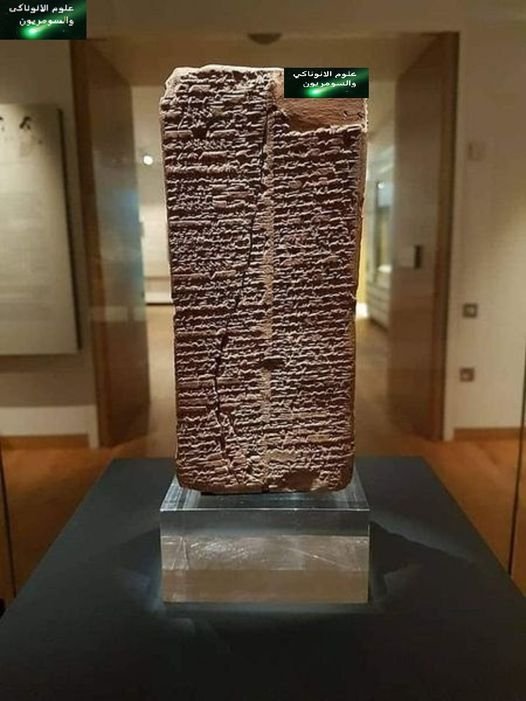The Sumerian Kings Who Ruled Earth for 241,200 Years
Unravel the mystery of the Sumerian kings who ruled Earth for 241,200 years.

The Sumerian Kings Who Ruled Earth for 241,200 Years: Myth or Fact?
Introduction
In the ancient world of Sumer, a civilization that flourished over 7,000 years ago in Mesopotamia, an astonishing discovery was made. A 4,000-year-old clay tablet, uncovered by the German-American researcher Hermann Hilprecht in the early 20th century, revealed a list of eight enigmatic rulers. According to this Sumerian text, these eight kings descended from the heavens and ruled Earth for an incredible 241,200 years before the Great Flood. But who were these rulers, and how did they manage to govern for such an unimaginable period?
The Discovery of the Sumerian Kings List
The discovery of the Sumerian Kings List is one of the most remarkable archaeological findings in history. The tablet, along with at least 18 similar cuneiform tablets, was found in the ancient Sumerian city of Nippur, located in modern-day Iraq. These tablets have been dated to around 2017-1794 BCE and are believed to have originated from a single Sumerian source.
The Sumerian Kings List documents the reigns of several generations of rulers who governed ancient Mesopotamia. The most controversial aspect of this list is the incredible longevity attributed to these kings, who reportedly reigned for tens of thousands of years. The list also includes events such as the Great Flood, which is said to have wiped out much of humanity, and mentions legendary figures like Gilgamesh.
The Eight Kings Before the Flood
Before the Great Flood, the Sumerian Kings List describes a period when the kingdom was established in Eridug (Eridu), the first city in Sumer. The reigns of the eight pre-flood kings are as follows:
- Alulim ruled in Eridug for 28,800 years.
- Alaljar ruled for 36,000 years.
- En-men-lu-ana ruled in Bad-Tibira for 43,200 years.
- En-men-gal-ana ruled for 28,800 years.
- Dumuzid, the Shepherd ruled for 36,000 years.
- En-sipad-zid-ana ruled in Larak for 28,800 years.
- En-men-dur-ana ruled in Zimbir for 21,000 years.
- Ubara-Tutu ruled in Shuruppak for 18,600 years.
These eight kings ruled for a total of 241,200 years before a catastrophic flood swept through the land. The idea that these rulers governed for such long periods has sparked intense debate and speculation among historians, archaeologists, and scholars.
The Debate: Myth or Historical Fact?
The extraordinary reigns of these eight kings have led many to question whether the Sumerian Kings List is a historical document or a mythological account. Some scholars argue that the extended lifespans are symbolic, representing the divine or semi-divine nature of these rulers. In Sumerian mythology, the gods were believed to have longer lifespans than humans, and these kings may have been considered godlike figures.
Others have drawn parallels between the Sumerian Kings List and the biblical Book of Genesis, which also mentions long-lived patriarchs before the flood, such as Methuselah, who lived for 969 years. This has led to further speculation that the Sumerian texts could be an earlier version of the same narrative found in the Bible.
Theories About the Long Reigns
Several theories have been proposed to explain the long reigns of these kings. Some researchers suggest that the Sumerians used a different system of time measurement, where a "year" could represent a month or another shorter period. This would significantly reduce the reported reigns, making them more plausible.
Another theory posits that the kings were not human but were extraterrestrial beings with advanced technology that allowed them to extend their lives. This idea is closely tied to the ancient astronaut theory, which proposes that ancient gods were, in fact, visitors from other planets who brought advanced knowledge and technology to Earth.
The Legacy of the Sumerian Kings
Regardless of whether the Sumerian Kings List is taken as a literal historical record or as a symbolic myth, its impact on our understanding of ancient civilizations is undeniable. The list provides a glimpse into the values and beliefs of the Sumerians, who saw their rulers as not just leaders, but as divine beings with a direct connection to the gods.
The legacy of these ancient kings continues to influence modern thought, inspiring countless theories and discussions about the origins of civilization and the nature of human history. The mysteries surrounding the Sumerian Kings List remind us of the complexities of interpreting ancient texts and the ongoing quest to uncover the truths hidden in our distant past.
Conclusion
The Sumerian Kings List remains one of the most enigmatic and debated artifacts from the ancient world. Whether the reigns of these eight kings are historical facts or mythological exaggerations, the list offers invaluable insights into the culture and worldview of the Sumerians. As historians and archaeologists continue to study these ancient texts, the mystery of the Sumerian kings endures, inviting us to explore the depths of our ancient past.
FAQs
1. Who were the Sumerian kings that ruled for 241,200 years?
The Sumerian Kings List mentions eight kings who allegedly ruled for 241,200 years before the Great Flood. These kings include Alulim, Alaljar, En-men-lu-ana, En-men-gal-ana, Dumuzid the Shepherd, En-sipad-zid-ana, En-men-dur-ana, and Ubara-Tutu.
2. Is there any evidence to support the long reigns of these kings?
The long reigns of the Sumerian kings are primarily documented in the Sumerian Kings List, a cuneiform tablet. However, these extended lifespans are widely debated, with some scholars interpreting them as symbolic or mythological rather than literal.
3. How does the Sumerian Kings List compare to other ancient texts?
The Sumerian Kings List has parallels with other ancient texts, such as the Bible's Book of Genesis, which also mentions long-lived figures before a great flood. These similarities have led to speculation about a shared cultural narrative.
4. What theories explain the long lifespans of these kings?
Theories about the long lifespans of the Sumerian kings range from symbolic interpretations of their divine nature to suggestions that the Sumerians used a different system of time measurement. Some theories even propose that the kings were extraterrestrial beings with advanced technology.
5. Why is the Sumerian Kings List important?
The Sumerian Kings List is important because it provides insights into the beliefs and values of the ancient Sumerians. It also serves as a valuable historical document that helps scholars understand the early history of Mesopotamia.
Explore More
If you're interested in learning more about the Sumerian Kings List and other ancient texts, visit our website for additional resources.
Search the Archives
Looking for more articles related to the Sumerian civilization? Use our search tool to explore a wealth of information on this fascinating topic.
Summary of Links:
What's Your Reaction?





















